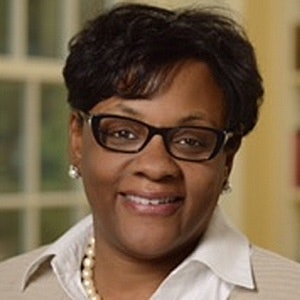After students expressed their concerns to administration following the death of George Floyd and other recent acts of police violence, American University’s School of Education (AU SOE) pledged to do their part to create an antiracist campus.
To go beyond “performative action,” the school analyzed their hiring practices and curriculum while faculty members participated in self-interrogation workshops.
“A student sent me an email saying, ‘we are not okay,’” said Dr. Cheryl Holcomb-McCoy, dean of AU’s SOE. “I understood that because I wasn’t okay either. We were looking at what we should do. We could put out a statement. We could talk about how we are committed to social justice and issues of equity, which we have always been. But it required more. We felt that we had to do more.”
 Dr. Cheryl Holcomb-McCoy
Dr. Cheryl Holcomb-McCoyIn the context of teaching, Dr. Traci Dennis, chair of the university’s SOE’s Committee on Diversity, Equity and Inclusion (DEI), defined antiracist pedagogy as “building ideologies, literacies and capacities that will support the development of a critical framework for recognizing and counteracting racist constructions of reality as they affect individuals as well as institutions.”
As part of promoting change within the hiring process, the list of candidates are also reviewed by the DEI committee.
“It’s a more intentional step around ensuring that we are bringing aboard diverse candidates and candidates that have the same vision around inclusiveness and antiracism,” said Holcomb-McCoy. “So, this is our way of building the antiracist community.”
The results are impressive. Out of eight newly hired faculty, three are Black males. Additionally, SOE hired a Black male postdoctoral scholar whose research looks at Black academic identity development of students and social media.
“They come with a wide range of antiracist perspectives and their own racial identities that intersect with other oppressive identities as well,” said Dr. Corbin Campbell, associate dean for academic affairs and associate professor in AU’s SOE. “Bringing that to the table just really helps our students to feel like there’s a pathway through academia for all students and especially for our Black and Brown students.”
To decolonize the program’s curriculum, a group of SOE faculty participated in a four-week syllabus analysis workshop. Discussions focused on systemic racism and its intersection with academia. From there, the curriculum was analyzed to ensure that Black scholars and Black knowledge were highlighted.
“Not only the content of our courses, but also the way we talk about our courses,” said Campbell. “The way we think about students’ voices and who the expert is and how we create a climate where students can thrive in the classroom.”
Faculty and staff also participated in self-interrogation workshops. Dennis emphasized that the idea behind becoming an antiracist is a “never-ending journey.”
“Being actively antiracist requires you to interrogate yourself and your environment daily to ensure that your actions and interactions are not based on racist ideas and beliefs,” she added. “Because when the news cycle dies down and the protests die down, racism is still going to exist in our country.”
 Dr. Corbin Campbell
Dr. Corbin CampbellThis year, SOE also received $150,000 from the Gates Foundation and funding from the Wellspring Philanthropic Fund, which will go towards the International Training and Education Program. The focus will be on the decolonization of the curriculum, children’s rights and antiracist practices, according to Holcomb-McCoy.
Other summer initiatives included conducting an antiracist book club for faculty and staff, establishing “healing spaces” for students, creating an assessment system to hold leadership accountable and developing a School Leadership Certificate for those interested in being principals and administrators.
Other existing programs within the school were also expanded.
For example, three years ago, SOE partnered with the District of Columbia Public Schools (DCPS) and Friendship Charter Schools to encourage more students of color to enter the field of education. This year, three Black students, who were fully funded, were part of the program and have the intention of working in DCPS as teachers.
“We’ve seen a sharp decrease in the number of Black and Brown teachers in our schools,” said Holcomb-McCoy. “So we see this as a part of our overall work as well, because to be antiracist means that we have to create policies and structures for students and people to have access to opportunities. Our dual enrollment program is just another piece of evidence of our commitment to antiracism.”
Additionally, the Summer Institute for Education, Equity and Justice, which was established by SOE in 2018, hosted a webinar in June focused on uplifting women and young girls of color. Over 8,000 people attended the virtual event.
“The virtual setup proved to be even more powerful,” said Holcomb-McCoy. “It was free and it was accessible. Our commitment around antiracism as a piece of this Summer Institute helped us to provide additional ways that people can get knowledge and come together with likeminded people to talk about strategies and interventions that are helpful in education settings.”
Students have expressed positive feedback around the initiatives and other deans have looked to implement similiar efforts for their own schools.
“I just heard from a student the other day that wrote and said. ‘I had a fantastic start to the year,’” said Holcomb-McCoy. “This was the same student that said he wasn’t okay and now he’s writing me that he’s pleased with the start of this year.”
Sarah Wood can be reached at [email protected]



















